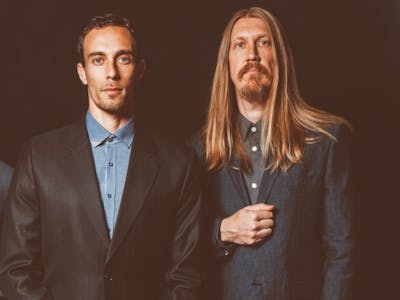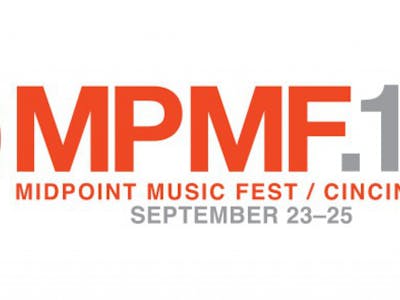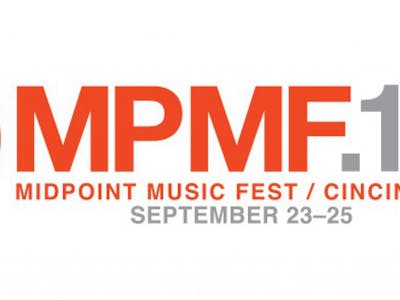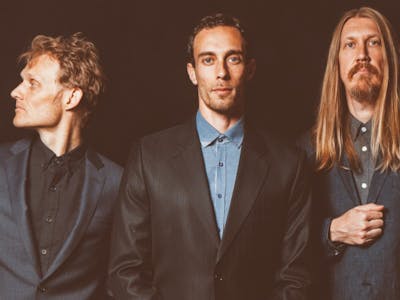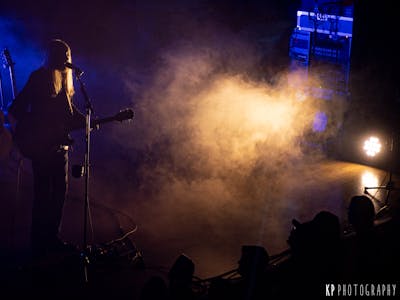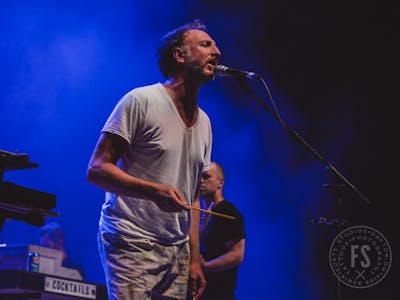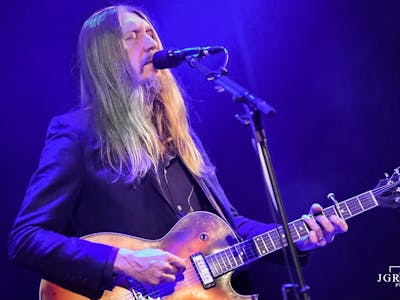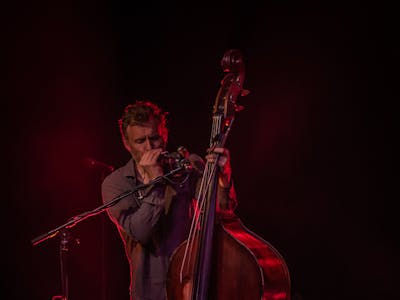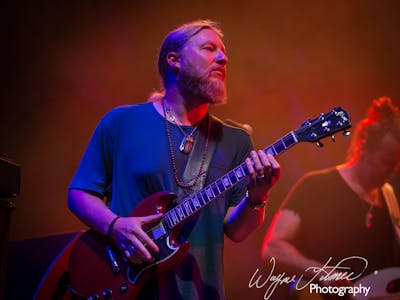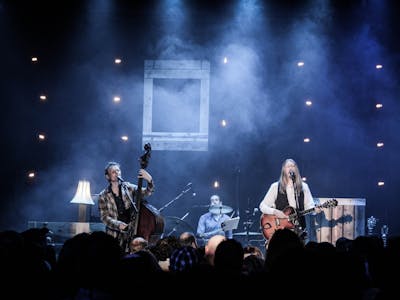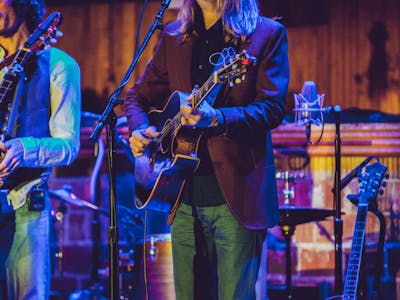The cover of The Wood Brothers' gorgeous new album, 'Paradise,' is adorned with an illustration of a mule staring at a carrot dangling just inches in front of its mouth. The carrot, though, is hanging from a stick affixed to the mule's own head.
"In some ways, he's already got it," explains guitarist Oliver Wood. "And in some ways, he'll never have it."
That paradox is at the core of 'Paradise,' an album about longing and desire and the ways in which the pursuit of fulfillment can keep it perpetually out of our reach. It's a beautiful collection, the band's most sophisticated work to date and also their most rocking, with bassist Chris Wood playing electric on tracks for the first time. Recorded at Dan Auerbach's Easy Eye studio in Nashville, 'Paradise' captures the latest chapter in the ongoing evolution of a band—and a family—navigating the joy and challenges of a life in music.
Dubbed "masters of soulful folk" by Paste, The Wood Brothers released their debut studio album, 'Ways Not To Lose,' on Blue Note in 2006. You'd be forgiven at the time for expecting it to be something of a side project. Chris Wood already had legions of devoted fans for his incomparable work as one-third of Medeski Martin & Wood, while his brother Oliver toured with Tinsley Ellis before releasing a half-dozen albums with his band King Johnson. Almost a decade later and with drummer Jano Rix added as a permanent third member, it's become quite clear that The Wood Brothers is indeed the main act.
'Paradise' follows the band's acclaimed 2013 release 'The Muse,' which was recorded almost entirely live around a tree of microphones in Zac Brown's Southern Ground studio. Hailed previously by the New York Times for their "gripping" vocals and by the LA Times for their "taught musicianship," the brothers found the live setting to be a remarkable showcase for their live chemistry and charismatic magnetism. But when it came time to record 'Paradise,' their fifth studio album, the band knew the music called for a different approach.
"For this album, we wanted to have a more up-close and dry sound," explains Chris. "I worked on another record at Easy Eye and I just loved the room. Dan's studio is cool because it's not old, but it feels that way when you walk into it. It reminds me of Sun Studios. It just has that feeling of a small room with natural compression, and I think you hear that in the sounds on the record."
The decision to record in Nashville was no coincidence either, as this marks the first album written with the entire band living in Music City.
"Oliver and I spent a lot of hours just in a room together writing songs," says Chris. "That's really never happened before. All the music in the past was written long distance or over the course of touring. It's definitely the most collaborative album we've ever made."
"It was kind of a luxury to be able to play together not just at a soundcheck," adds Jano. "It was a different starting point. Rather than people bringing in compositions that were relatively finished, we were starting from the ground up as a group."
The album opens with "Singing To Strangers," which sets the tone for what's to come both musically and thematically.
"Singing to strangers is something we do every night," explains Oliver, "and there's some satisfaction about singing to strangers. It's this weird thing that I think we get addicted to. It's not that we need attention as much as we need connection. On a good night, when we're singing to strangers, everybody in the room bonds, and you have this amazing sense of connection."
That desire for connection permeates the album, from "Touch Of Your Hand"—a song about what Chris describes as "the most basic human need that there is"—to "Two Places"—a track about longing for home and family while on the road—to "Never And Always," which examines the fundamental emotional experiences of loneliness and belonging. "Snake Eyes" and "American Heartache" both explore the dark side of longing, how the constant need for more in our consumer culture can engender a perpetual dissatisfaction with never having enough, while on "Without Desire," they find the beauty and the magic that the titular emotion can bring into our lives.
"Desire gets a bad rap sometimes," explains Chris, "and people think it’s the root of all of our problems. We wanted a song that said, 'Maybe it's not, maybe we need it.' What would it be like if we didn’t desire all those good things in life?"
In addition to Chris's electric bass, which appears on two tracks, the album also showcases Jano's "shuitar," a portmanteau for "shitty guitar." The name belies the instrument's complexity, though. It's actually an acoustic guitar that Jano has rigged up with noisemakers to function as an easy-to-travel-with drum kit.
"I made one in The Wood Brothers because we needed a portable drum set we could take to play on sessions and on the radio," he explains, "but then we've been using it so much live, we started writing for it and not wanting it to even sound like a drum set anymore. We wanted to let it be its own thing."
It turns up prominently on "Heartbreak Lullaby," which also features guitar playing from Oliver inspired by field recordings of African folk musicians. There's more to Jano than percussion, though, as he sits down at the piano on several tracks on 'Paradise,' including album closer "River Of Sin."
"That song imagines how when people get baptized in a river, it's supposed to wash away their sins," explains Chris. "But what happens to the water? Where do the sins go? And what if you live downstream from all that baptizing?"
"A lot of the songs are dealing with these themes of longing and desire," adds Oliver, "but the album finishes with 'River of Sin' because it's a positive and empowering message, which is that you can't really do anything unless you're persistent. The narrator is humble and understands that there are all these things larger than him and
he's just trying to understand them and he's determined to do better and be as good as he can. And he recognizes the only way to do that is to keep trying."
It's a fitting, lovely, gospel-tinged ending to an album that traces both the darkness and the beauty in our nature, the perpetual hope and the futility of it all. The quest for the carrot often blinds us to the fact that we already possess it, and that's the irony of desire.
"He who is not contented with what he has would not be contented with what he would like to have.” Socrates said that.
"I can't live without desire / If I didn’t want anything / Why would I rise? / Why would I sing?" The Wood Brothers said that.
